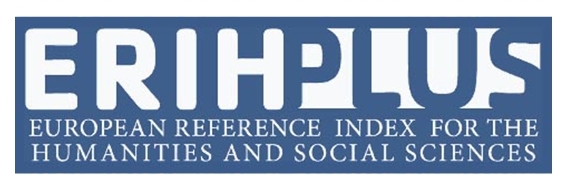Interpellation of the ESI from the Notion of Citizenship
The Case of the Province of Santa Fe, Argentina
DOI:
https://doi.org/10.24215/24690333e051Keywords:
comprehensive sex education, debates, citizenship, curricular contentsAbstract
This work was carried out within the framework of a research that aimed to deepen and expand knowledge about Comprehensive Sexual Education during the period 2015-2019 in the province of Santa Fe, Argentina. In this sense, we present a detailed analysis of this public policy in relation to its emergence and content, under the interpretive frameworks that construct the notion of citizenship. The study allows us to conclude that education for democratic sexual citizenship is promoted in primary education institutions in the province of Santa Fe.
Downloads
References
Abella, M. F., Barbieri, E. y Castro, P. (2020). La cuestión de la intergeneracional entre docentes-alumnxs en la implementación de la Educación Sexual Integral (ESI). En E. Barbieri, P. R. de Castro y V. López Tessore (Comps.), Engenerizando las políticas públicas. Experiencias de participación e implementación en los campos de la salud, la educación y los derechos de las mujeres (pp. 77-92). Laborde.
Andrenacci, L. (2003). Imparis Civitatis. Elementos para una teoría de la ciudadanía desde una perspectiva histórica. Sociohistórica, 13-14.
https://www.sociohistorica.fahce.unlp.edu.ar/article/view/SHn13-14n03
Bottomore, T. y Marshall, T. (1998). Ciudadanía y clase social. Alianza.
Faur, E. (2007). Fundamentos de derechos humanos para la educación integral de la sexualidad. En Educación sexual en la escuela. Perspectivas y reflexiones (pp. 23-47). Gobierno de la Ciudad Autónoma de Buenos Aires.
Faur, E. y Gogna, M. (2016). La Educación sexual integral en la Argentina. Una apuesta por la ampliación de derechos. En I. E. Ramírez Hernández (Comp.), Voces de la inclusión. Interpelaciones y críticas a la idea de inclusión escolar (pp. 195-227). Praxis Editorial.
Fraser, N. (2015). Fortunas del feminismo del capitalismo gestionado por el Estado la crisis neoliberal. Traficante de sueños.
Jelin, E. (1998). Igualdad y diferencia: dilemas de la ciudadanía de las mujeres en América Latina. Ágora. Cuadernos de estudios político, 3(7).
López Tessore, V. y Arce, L. (2015). Significaciones y prácticas educativas en torno al Programa Nacional de Educación Sexual Integral: una experiencia educativa desde la antropología de género. Actas de las XIII Jornadas rosarinas de antropología socio-cultural. Universidad Nacional de Rosario.
Monte, M. E. (2010). Del universo de “lo político” a lo plural de “los políticos”: distintos aportes teóricos en torno a la noción de ciudadanía sexual. Claroscuro, IX(9). https://rephip.unr.edu.ar/handle/2133/12533
Morgade, G. (2006). Educación en la sexualidad desde el enfoque de género. Una antigua deuda de la escuela. Novedades educativas, (184), 30-44. http://viejo.unter.org.ar/imagenes/Educacion-en-la-sexualidad-desde-elenfoque-de-g%C3%A9nero.-Morgade.pdf
Morgade, G. (2011). Toda educación es sexual. Hacia una educación sexuada justa. La Crujía.
Mouffe, C. (2001). Feminismo, ciudadanía y política democrática radical. Fondo de Desarrollo de las Naciones Unidas para la Mujer (UNIFEM).
Oneglia, M. (2019). Feministas y políticas públicas. Trabajar en Educación Sexual Integral en la provincia de Santa Fe (Tesina de grado). Universidad Nacional de Rosario, Argentina.
Oneglia, M. (2020). Feministas en el Estado. Una aproximación etnográfica a las trabajadoras del Programa Provincial de Educación Sexual Integral de la provincia de Santa Fe. En E. Barbieri, P. R. de Castro y V. López Tessore (Comps.), Engenerizando las políticas públicas. Experiencias de participación e implementación en los campos de la salud, la educación y los derechos de las mujeres (pp. 93-116). Laborde.
Pateman, C. (1988). El contrato sexual. Stanford University Press.
Rosemberg, D. (2012). El desafío de la educación sexual. Cuadernos de discusión 4. Universidad Pedagógica Nacional. https://www.educ.ar/recursos/105914/cuadernos-de-discusion-n-4-el-desafiode-la-educacion-sexual
Young, I. (1996). Vida política y diferencia de grupo: una crítica del ideal de ciudadanía universal. En C. Castells (Comp.), Perspectivas feministas en teoría política (pp. 96-126). Paidós.
Valladares Tayupanta, L. (2002). Derechos sexuales. Revista Comité de América Latina y el Caribe para la Defensa de los Derechos de las Mujeres. https://cladem.org/wp-content/uploads/2018/11/serias-debate_derechos-sexuales.pdf
Downloads
Additional Files
Published
How to Cite
Issue
Section
License
Copyright (c) 2023 Valeria Venticinque, Micaela Tibaldo

This work is licensed under a Creative Commons Attribution-NonCommercial-ShareAlike 4.0 International License.
Current policy since 2019
The acceptance of an original by the journal implies the non-exclusive transfer of the patrimonial rights of the authors in favor of the publisher, who allows the reuse, after its edition (postprint), under a Creative Commons License Attribution-NonCommercial-ShareAlike 4.0 International.
According to these terms, the material can be shared (copy and redistribute in any medium or format) and adapted (remix, transform and create another work from the material), provided that a) the authorship and the original source of their publication (magazine and URL of the work) are cited, b) is not used for commercial purposes and c) the same terms of the license are maintained.
The assignment of non-exclusive rights implies that after postprint in Con X authors may publish their work in any language, media and format; in that case, it is requested that they signal that the material was originally published by this journal.
Assignment also entails the authors’ authorization for the work to be collected by SEDICI, the institutional repository of the Universidad Nacional de La Plata, and for it to be indexed in the databases that the publisher thinks appropriate for enhancing the visibility of the published work and its authors.
In addition, the journal encourages authors to submit their works to other institutional and thematic repositories after their publication in Con X, under the assumption that offering society unrestricted access to scientific and academic production contributes to a greater exchange in global knowledge.








.jpg)

.png)



.png)





















